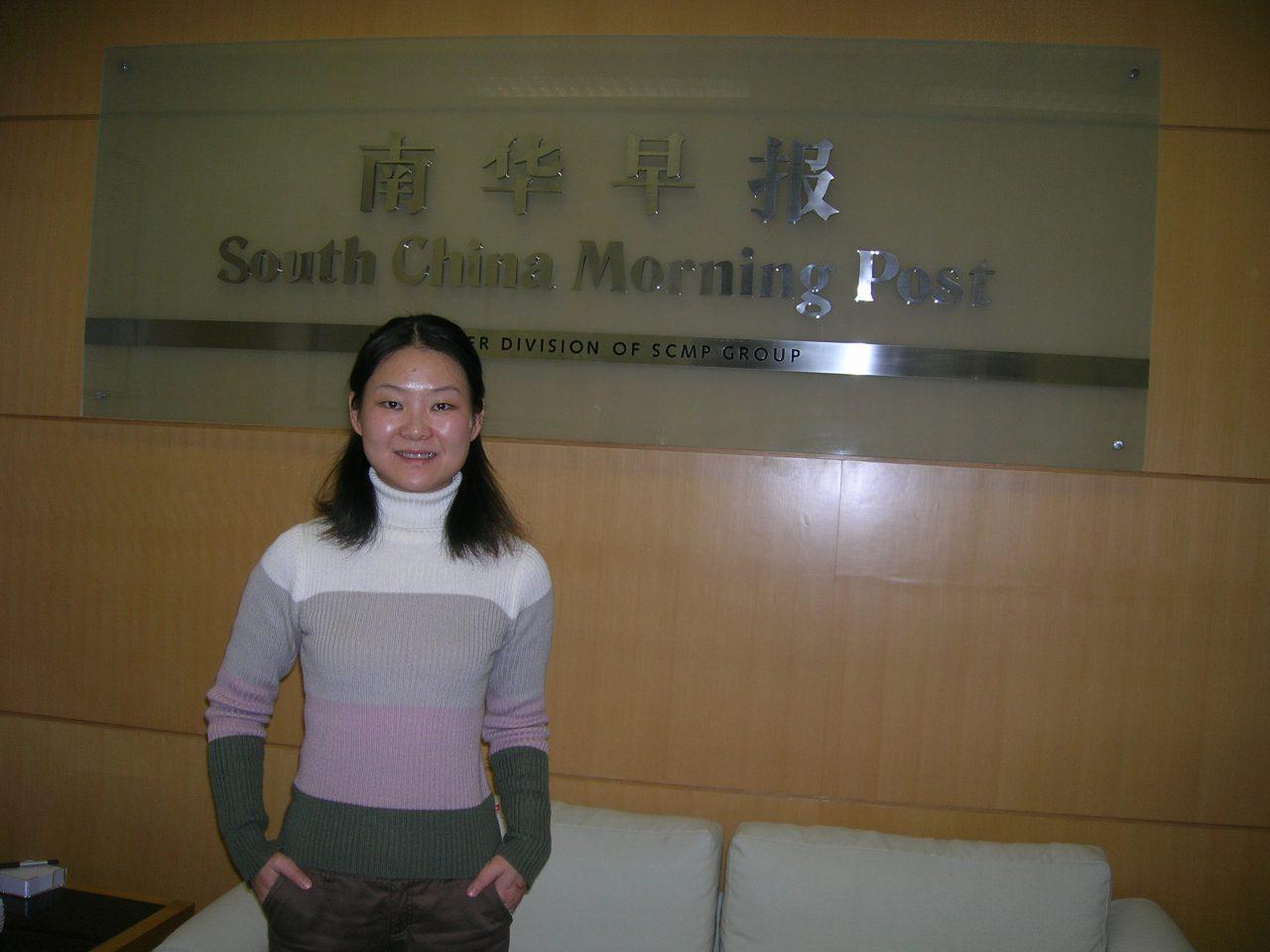Photo provided by Zhaoxi Liu
Many students might be surprised to find out which unique careers Trinity faculty and staff members had before coming to Trinity — from lobster-selling to risky journalism.
Sheryl Tynes, Bartender
Sheryl Tynes, who the Trinity community knows as the vice president for Student Life and professor of sociology and anthropology, worked as a bartender to pay her way through college.
“When I was 18, I started work in a place called the Longhorn Saloon, in Great Falls, Montana. I started off as a cocktail waitress and eventually figured out I could make more money by bartending,” Tynes said.
Strangely enough, bartending complemented her studies in social justice and sociology.
“My dad always said to me, bartending is going to be the best lesson in humanity that you will ever get,” Tynes said. “You do learn a lot about people, and there’s a lot of good in the world. You learn how to listen to anybody, to their stories. And you see a lot of the sadness and dysfunction, too.”
Though Tynes liked the work she did, it was not easy. It also pushed her to focus on her education as a way to be sure she would have more opportunities than just this job.
Zhaoxi Liu, Journalist
Zhaoxi Liu, assistant professor of communication, was a journalist in 1990s China.
“I became a reporter right out of college because journalism was the only thing I wanted to do,” Liu said.
She first worked for the Beijing Youth Daily newspaper, writing mainly about education topics. She reported on the stressful lives of students in China as well as the loss of funding for schools during China’s transition to a more market-oriented economic system.
After completing her Masters degree in Journalism at the University of Missouri, Liu began working for the Beijing Bureau of the South China Morning Post, a Hong Kong-based English newspaper.
“This paper was very different,” Liu said. “All the newspapers I worked at before were part of China’s state media system, but they more or less were controlled by the propaganda guidelines. The kind of stories we could write were very limited, and our editor was often afraid of getting into trouble and would not run the story.”
Because The South China Morning Post was not subject to Chinese state control, Liu was able to cover more controversial and politically sensitive stories. This liberty, along with the thrill of the job, was what Liu enjoyed most.
“That’s kind of the reason I like being a reporter; there’s a lot of unpredictability but it’s really an adventure. I often threw myself into the middle of nowhere and found my own way, my own sources,” Liu said.
Katsuo Nishikawa Chávez, Seafood Seller
Katsuo Nishikawa Chávez, director of the Center for International Engagement, only found sparse employment until he decided to start a business with his cousins selling seafood internationally from Ensenada, Mexico, to various parts of Asia.
“[A contact] had these connections in Hong Kong and Shanghai, and he wanted someone to sell him live lobsters,” Nishikawa Chávez said.
Thus they entered this industry, all in their mid-twenties, with scant information about it, and they found out how to build a facility that could hold and keep the lobsters alive and fresh in order to sell them at their highest value and ship them globally.
“It was a lot of doing stuff ourselves, A to Z. We didn’t know enough not to do it and so we did it … When we sold millions dollars-worth of stuff, it was like ‘Wow.’ It was crazy,” Nishikawa Chávez said, “Each year we would increase in capacity and make more money, and we would just fold it back into the company.”
Unfortunately for Nishikawa Chávez and his cousins, the enterprise ended when the facility caught fire, and they were unable to recover financially from the loss. According to him, however, this experience was a crazy four years in which he learned a lot.
“Years later, all this stuff on negotiation and working with people from different cultures is now what I do professionally in this job. So I’m really thankful for the really hard experience,” Nishikawa Chávez said.
All the faculty and staff members interviewed hold the same belief: that their former jobs have influenced their careers today in various ways.
According to Liu, skills she developed while working as a journalist, such as observation and communication, were tremendously beneficial and prepared her for doing research as a scholar.
“Just [having] the ability to figure out what I need for a story, what kind of information I need to gather [is important]. Finding a source without any help, basically, finding a source out of nowhere and talking to complete strangers, [some of whom] spoke the local dialect I couldn’t understand,” Liu said.
Tynes believes bartending was a fun and interesting experience that also taught her many essential skills.
“I think knowing how to engage with people and read people teaches you emotional intelligence,” Tynes said. “I honestly think that it’s great experience for any young person to work in the service industry, because you see the whole range of the human condition and it makes you more empathetic, tougher and a better customer.”
Each faculty member interviewed also said that these previous jobs were just one of the many they have had over the years. They all wished to remind students that where they will work upon graduating will be a mere glimpse at their future careers.
“If there’s a takeaway: you never know what you’re going to learn from these crazy jobs,” Nishikawa Chávez said.






